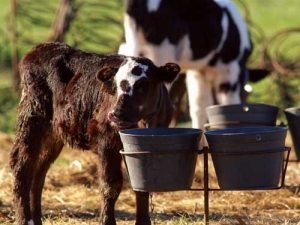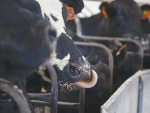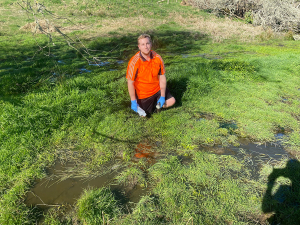1. Feed good-quality colostrum for at least four days
2. Set up spacious, dry, draught-free housing
3. Do not skimp on feed quality – you will pay later!
Wendy Morgan, SealesWinslow nutrition and quality manager, says developing a plan is essential for calves to achieve weaning weights quickly while their digestive development is supported.
“Having a plan in place focused on colostrum, housing and quality feed will result in well-grown, healthy calves that will thrive for the duration of their productive lives. Colostrum should be fed for at least four days.
“Colostrum contains immunoglobulins, as well as essential vitamins and minerals, which builds immunity to disease. A calf with a strong immune system will have a lower risk of scouring and better growth results,” says Morgan.
“By five days old calves can move on to milk or calf milk replacer. At the same time calves should be offered muesli or pellets to get them used to the feed that will initiate their rumen development,” she says.
Morgan says the cost of dry feed can vary considerably, but it pays to look twice, with cheaper products using fillers and ingredients like chocolate and lolly waste.
“These products don’t have optimal nutrition levels and calves will never catch up to optimal growth weights and production levels if they are compromised early on. Invest in feed which is derived from soya beans, cottonseed or canola as they contain amino acids that young calves require.”
It is easy to over-look investing time and energy into providing spacious, dry and draught-free housing, says Morgan but it is essential to get this right because diseases can spread quickly through calves in sheds.
“We would recommend calf numbers are held at 10 or 12 per pen. Smaller numbers of calves tend to be healthier and it’s easier to spot health problems early on. Use a good disinfectant at the start of the season and regularly while the shed is in use,” she says.


















